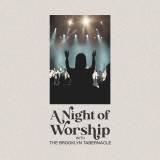Leading Worship: Three Neccessities – Growth in Faith, Theology, and Music

We need effective leaders of worship like never before. We need songs and services led by authentic and healthy people. In a day when celebrity and fame are sought after, we need servants to our congregations rather than platform-building personalities. Through musical leaders, the Bible has been put to music in the form of Psalms and hymns. In history, both soaring and humble melodies have arisen in the Western Church over the years. Today, the proliferation of worship leader training programs at the university level is a sign that there is a need for both the leadership of churches and worship leaders themselves to be effective. Why is this so? And, what does the recipe for an effective worship leader look like?
Leading Worship: Three Musts of Effective Worship Leaders –
Growth in Faith, Theology, and Music
I
believe that there are three areas for the worship leader that must be
sharpened over time. Obviously, as a leader in the faith, the heart and
experience that is rich and connected to the Holy Spirit, will ground
us. The wonderful times we serve in music cannot be the only occasions for
inspiration, however. Our well must be deeper than that. As far as theology, we
partner with the pastor in teaching the great truths of the faith. The more we
grasp the foundations of biblical truths, the richer our ministry in music
becomes. The vehicle of music cannot be forgotten or an afterthought. If a
preacher of the Word is to be effective, learning effective speaking and
communication techniques will obviously be in order. To be one who leads the
church in prayer through songs and music, the skill of a music leader then can
only be a positive quality, as well.
Basically,
you need to follow hard after God, learn the Bible like a pastor, and become
the most skilled you can as a musician. This trifecta can be a recipe for
effectiveness in the nebulously defined role of worship leader. It means
dedication on several fronts of your life as a worship leader and years of
commitment. Talent alone will not sustain any of us in ministry. But, without
the proper tools and disciplines, we shorten our shelf life at best, and wash
out at worst. While honing our heart is central, it is not going to be enough
as a leader. Both skill and heart together–with the Bible as the anchor–is the
formula we should consider. As we consider the huge task, let us also
anticipate the huge reward in being able to serve the local church as worship
leaders. We “get” to do this! It is a joyous challenge. The longer we can
sustain and serve, the more of this joy we get to be a part of.
With
that being said, let’s look at reasons why these three areas matter by
answering some questions widely asked by worship leaders.
Were
worship leaders in the Bible (and history) paid or volunteer?
You
are not alone in your calling, as there have been many before you.
Understanding the history of the Church and of your local church will greatly
aid you in addressing a topic, such as who to pay in leading worship, for
instance. Like I said in a previous article, “Worship Leaders Are Not
Superheroes”, the term “worship leader” is not an official title or office
found in the Bible. What we find in the Old Testament, however, are priests,
musicians and servants in the temples from the tribe of Levi. This group of
servants started with the Tabernacle worship and then the Temple of Solomon and
beyond. They were paid for their duties, receiving income from a portion of the
offerings given. So, even though the title “worship leader” was not official,
these Old Testament Levites had the professional task of leading worship,
paving the way for what some of us do today in the Christian church.
The
tribe of Levi is where the priests were also called from. Not just anyone could
be a priest or a temple musician. King David seemed to personally appoint
musicians and leaders. It was a humble yet highly honored post. King David, the
army man he was, organized these musicians and priests in military fashion.
There were leaders and musical directors and an obvious hierarchy in the Old
Testament worship. (1 Ch 6:31 , 1 Ch 25:1
, 1 Ch 25:1 , Ps 68:25
, Ps 68:25 )
)
We
also have counterparts in history in the early church. In the New Testament, we
have music as a part of worship (Eph 5:19 , Col 3:16
, Col 3:16 , Jas 5:13
, Jas 5:13 ). However, we have no such
office as a stated profession from what we see in the letters. There were
“ministers” or deacons or deaconesses who were likely paid along with the
Apostles and the elders of the church. (Ro 16:1
). However, we have no such
office as a stated profession from what we see in the letters. There were
“ministers” or deacons or deaconesses who were likely paid along with the
Apostles and the elders of the church. (Ro 16:1 , Php 1:1
, Php 1:1 , 1 Ti 3:8
, 1 Ti 3:8 ) This even included women, by the
way, such as Phoebe who was mentioned by Paul (Ro 16:1
) This even included women, by the
way, such as Phoebe who was mentioned by Paul (Ro 16:1 ), and the “widows” who served had
a special place in the early church as employed ministers. (1 Ti 5:3-12
), and the “widows” who served had
a special place in the early church as employed ministers. (1 Ti 5:3-12 ). The Apostle Paul mentions public
worship and “singing” in his letters multiple times. So it seems sure that
singing and music were part of the ancient church practice, just not as
grand as in the Temple of Solomon. The activity of worship originated in homes,
after the synagogues were no longer friendly to Peter and the other Apostles
and as the Church grew beyond the Jewish people (Ac 13:14-43
). The Apostle Paul mentions public
worship and “singing” in his letters multiple times. So it seems sure that
singing and music were part of the ancient church practice, just not as
grand as in the Temple of Solomon. The activity of worship originated in homes,
after the synagogues were no longer friendly to Peter and the other Apostles
and as the Church grew beyond the Jewish people (Ac 13:14-43 , Ro 16:5
, Ro 16:5 ). The Church was almost
underground by the time the Apostle John wrote The Book of Revelation. Music,
we can easily assume, was underground in the church, too.
). The Church was almost
underground by the time the Apostle John wrote The Book of Revelation. Music,
we can easily assume, was underground in the church, too.
By
the time of AD 325 when Emperor Constantine called the Council of Nicaea, the
Christian church was finally declared legal in the Roman Empire and practices
of worship came out from hiding from all over the known world when Constantine
issued the Edict of Milan. (Galli, Mark, and Ted Olsen. “Introduction.” 131
Christians everyone should know 2000 : 307) By 397, our Bible was widely
recognized by the Council of Carthage–the official list of books accepted as
the Bible we see today. (Bruce, F. F. The Canon of Scripture. Downers Grove,
IL: Inter-Varsity Press, 1988 : 97.) The Nicene Creed was acknowledged and
accepted as the global Church statement of faith. (Historic Creeds and
Confessions. electronic ed. Oak Harbor: Lexham Press, 1997) From here, church
music and worship became a professional post as clergy and laity are employed
to lead worship—both as priests and musicians, respectively.
In
our Western church history, there was mainly vocal music expressed in worship
until about the 12th Century when music harmony and the organ grew to accompany
singing. (Dickinson, Edward. Music in the history of the western church, with
an introduction on religious music among the primitive and ancient peoples. New
York: C. Scribner’s Sons, 1902 : 129) After the Reformation in 1517, liturgy
and worship began to be sung and spoken in the native tongue, outside the Roman
Catholic Church. The Bible was translated and printed in native languages,
giving access to people like never before. Of course, sacred music would follow
suit. The Protestant worship music we sing today grew to be more congregational
rather than the performance from professional choirs or cantors singing
Gregorian chants.
Being
a paid or volunteer music leader depended on the wealth of the church and
season in Church history. Today, we seem to be in a similar situation in the
United States. We have both. Some lead our worship as professionals while
others lead as lay volunteers. Both must be respected and valid, as they were
both biblically and historically. I cannot see a historical or biblical
argument that fairly prohibits payment of musical leaders of worship and there
seems to be no argument on the other side to exclusively demand this, as well.
What history teaches us is that with everything from church furniture placement
to our songs, the challenges we face today as worship leaders may not be as
unique as we think they are.
How
do we not let skill get in the way of the Holy Spirit? Is preparation a
block to the Spirit’s leading?
What
do you do when you are seasoned and prepared enough to rely on your honed
routines, rather than on the power of the Holy Spirit? First off, I think we
need to be clear that preparation, talent, skill and the gifts one may have are
not obstacles to the Spirit. Why would they be? After all, our mind and body
were ordained by our Creator. When we apply the material that God has given us
to excel, then I think we are being a better vessel for the Holy Spirit, not a
detriment.
The
point here is this. We can often forget who is really the Author of our
ministry and the one responsible for the results. The truth is that our gifts
often do not match our inner character. We can observe what others see in the
power of our spiritual gifting and mistake that for God’s endorsement of our
attitudes and choices. This is when our skill or gifts get in the way. We let
them be the only feedback to our ministry and possibly damage the ability to
serve with these gifts.
The
humble worship leader will be confident in the skill and gifting, but not so
much in our human limitations. We need rest. We need friendships and community.
We need God’s presence when we are not in front of others leading them. The
skill will not do any of these! Our hearts are fragile, even when our ministry
may be a powerful thing to those we serve.
Therefore,
we must continue to prepare in skill and hone both the human and supernatural
gifting God has put in our domain. We must then learn to rely on that same
Spirit who gave us these skills of ministry to minister to us, too. Indeed, we
can learn to put on a show and do that well. God will use that if he so chooses,
but our strength does not come from that; It comes from our relationship with
Him. Why would we help others connect to God with our skill while not enjoying
the same ministry for ourselves? Well, we are human and therefore forget. In
this case, we forget that we are more than the things we do and whose power is
the source of it all.
What
do we do when we are more concerned with a sound or vibe than faith and
spiritual growth? (The dangers of reverse engineering God’s work.)
What
is our goal for the worship service? Working for a vibe or copying an
experience seems common today, because the modern church in America has learned
business growth practices and marketing like never before. For the most part,
these skills can be good things. However, have our tools and practices been
allowed to change our purpose? We can put on events with ease. We can market to
a demographic and be on message with a laser focus. This leads to reverse
engineering God’s movements in other churches. We would rather copy and paste a
move of God than do the hard work of developing people. Do we believe that God
works through people or through a system?
The
power of grass-roots growth cannot be understated. The original followers of
Jesus were only a dozen close disciples with a hundred or more other committed
people. Jesus spent his three short years of ministry with a small group of
people, even though the crowds were a part of it, as well. The crowds were not
his main focus, however. His most powerful teachings were spoken to his twelve.
They heard the rest of the story when Jesus puzzled the crowds with challenging
parables and we see Christ in many personal conversations with foes,
as well as outcasts.
Does
the sound or vibe we desire in our church come from our desire to quickly see the
results of another ministry’s years of grass-roots work? Hillsong, for
instance, has been making worship music and training its own people for
decades. For a church to simply copy what they do in public without training
and developing people like they do off-stage is foolish. On top of that, are we
sure what God chooses to do with one group is meant for our group? Maybe God
has a different plan for your ministry.
Spiritual
growth should be our value, not recreating the feel of a successful ministry we
have visited at a conference or seen on a YouTube video. It is true, many
pastors and leaders think success will come from reverse engineering successful
ministries. However, discipleship is a slow process that involves developing
people—not developing a vibe or sound! What would we rather have? Do we want
the appearance of success, or the transformation of lives? That is the question
we should ask. And, as worship leaders, we are at our best when we learn to
develop other worship leaders for worship, not just what is put in front
of people.
PAGE 1 2
Leading Worship: Three Neccessities – Growth in Faith, Theology, and Music
 Reviewed by Admin
on
1:00:00 AM
Rating:
Reviewed by Admin
on
1:00:00 AM
Rating:
 Reviewed by Admin
on
1:00:00 AM
Rating:
Reviewed by Admin
on
1:00:00 AM
Rating:
















Post a Comment